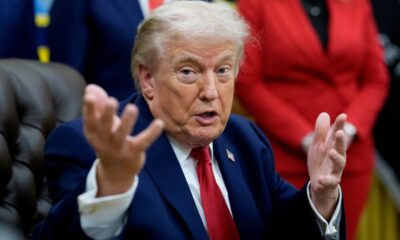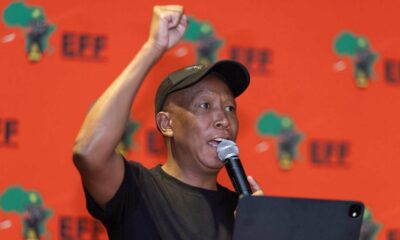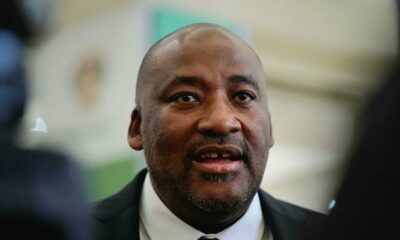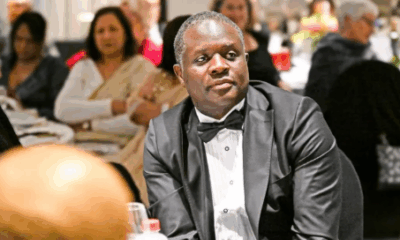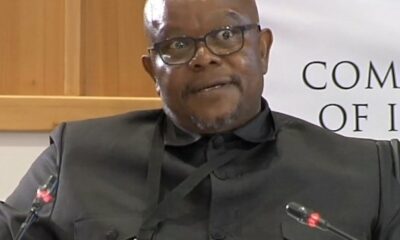News
Ramaphosa Defuses Tense Trump Encounter Over False White Genocide Claims
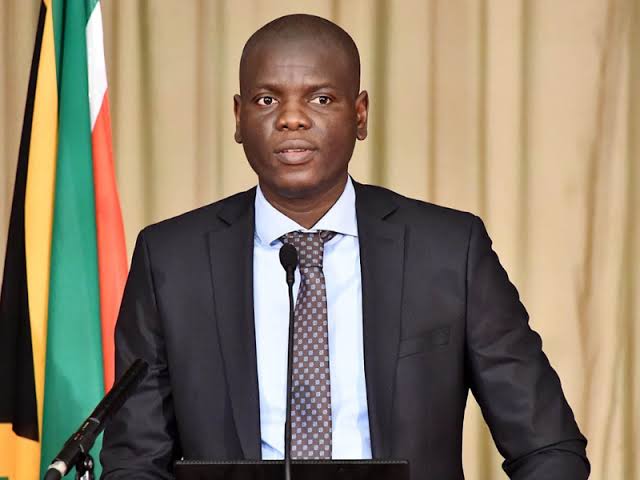
South Africa’s government had a choice: confront U.S. President Donald Trump head-on over false claims of white genocide, or steer the conversation toward repairing strained bilateral relations. It chose the latter.
This insight came from International Relations Minister Ronald Lamola during a candid interview with CNN’s Christiane Amanpour following a high-stakes meeting between President Cyril Ramaphosa and Trump in Washington, D.C.
Confrontation Behind Closed Doors
According to Lamola, the South African delegation went into the meeting with one clear goal — to restore diplomatic ties, not derail them over misinformation. When Trump presented graphic material and made accusations of anti-white violence in South Africa, including footage of EFF leader Julius Malema and references to farm murders, Ramaphosa responded with composure.
“It was a strategic decision,” Lamola explained. “We could have let the meeting collapse over something that simply doesn’t exist. Instead, we chose to clarify the issue privately and maintain diplomatic progress.”
Lamola added that the video shown by Trump misrepresented facts, and that the accompanying documents were not even about South Africa.
“Kill the Boer” Misunderstood
One of Trump’s major talking points was the controversial struggle song “Kill the Boer.” Lamola acknowledged the song was discussed, but he emphasized its historical context and clarified that it is not part of any state-endorsed policy or call to violence.
“South Africa’s Constitution is very clear: this country belongs to all who live in it. While transformation is essential, it’s carried out within the framework of law and unity,” he said.
He also reiterated that Julius Malema and the EFF are not part of the Government of National Unity (GNU), countering Trump’s apparent assumption that Malema represented the government.
Trump Open to Listening
Despite Trump’s combative stance, Lamola and Ramaphosa both noted that the U.S. president appeared open to different perspectives. After the meeting, Ramaphosa told reporters that while Trump wasn’t convinced there was no genocide, he showed signs of doubt.
“When asked if he truly believed in the existence of white genocide, he admitted he wasn’t fully convinced,” said Ramaphosa. “That’s progress.”
The Bigger Picture
Lamola stressed that the focus wasn’t just on defending South Africa’s image, but on protecting the long-term diplomatic relationship with one of the country’s major global partners.
“We knew what was at stake,” Lamola said. “The goal was not to win an argument but to reset the relationship and keep lines of communication open.”
South Africa’s approach to Trump’s white genocide narrative was less about confrontation and more about recalibration. With tensions high and misinformation swirling, the Ramaphosa administration chose a steady hand — a move aimed at safeguarding the country’s international standing and economic interests.
{Source: The Citizen}
Follow Joburg ETC on Facebook, Twitter , TikTok and Instagram
For more News in Johannesburg, visit joburgetc.com

